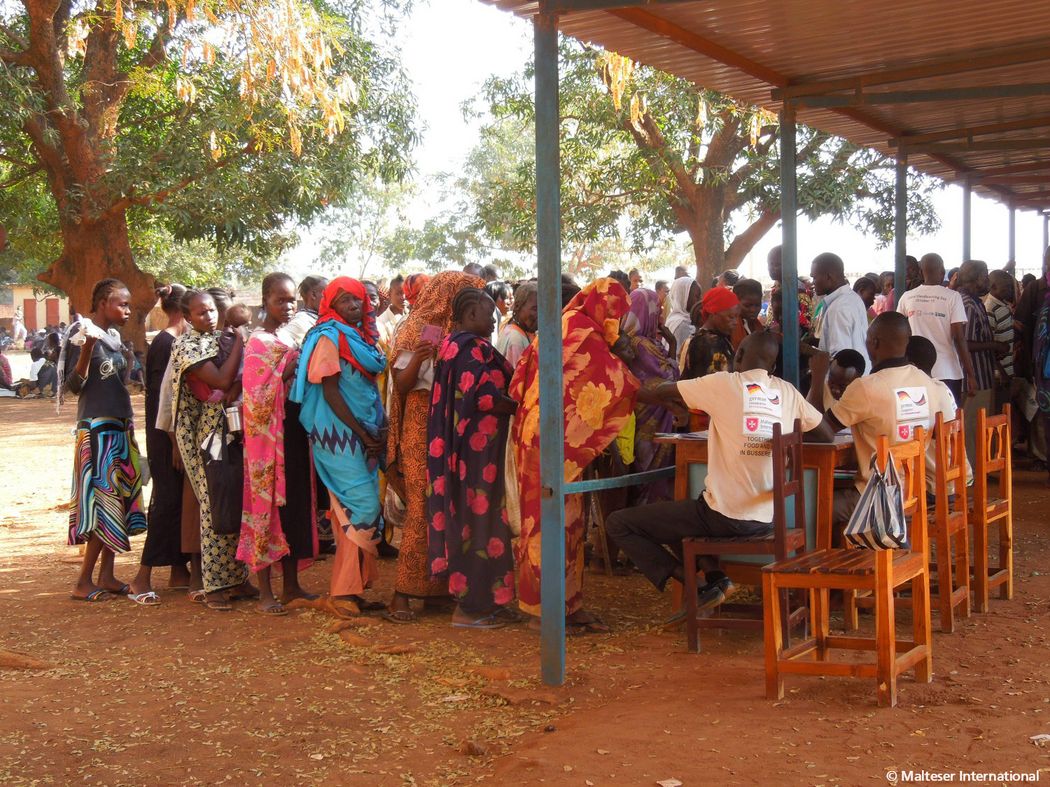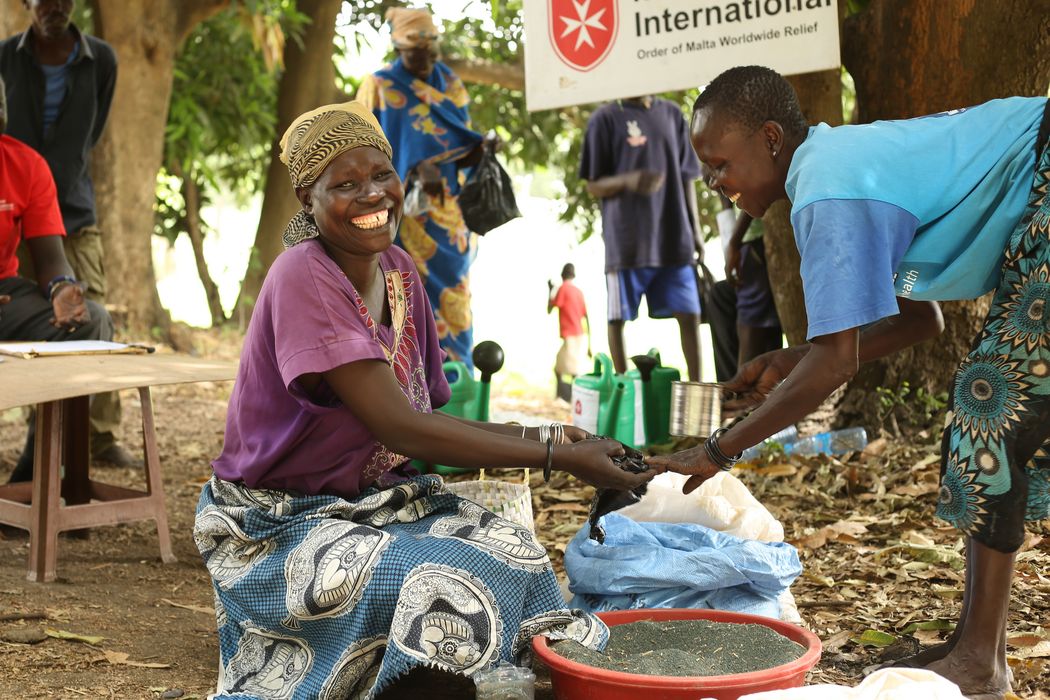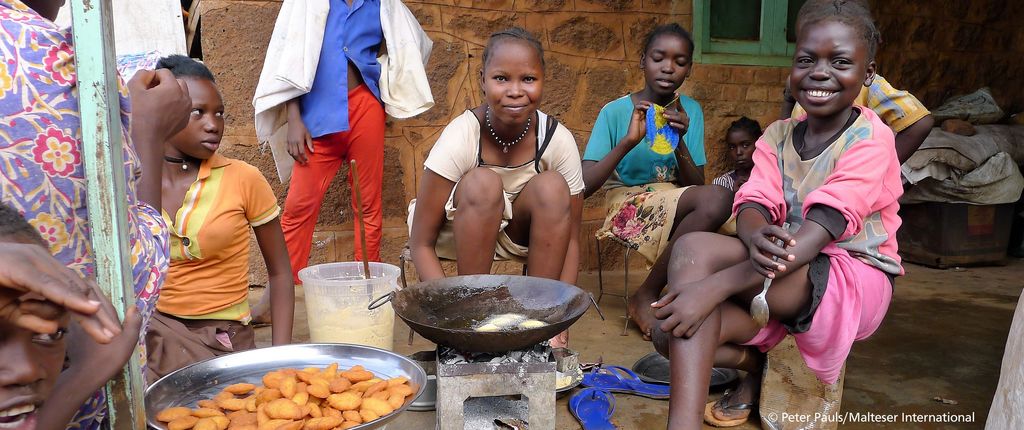
South Sudan: Finding refuge in the House of God
Five years of civil war in the world’s youngest nation has forced more than four million people away from their homes, half of them are displaced in their own country. Some have been fortunate enough to remain with their families, but many have found refuge in camps for displaced persons in urban areas. In Wau, South Sudan’s second largest city, tens of thousands of people have found refuge. No one knows exactly how many people are seeking refuge here, but one thing is certain: The living conditions in the camps are not favorable for a healthy life.
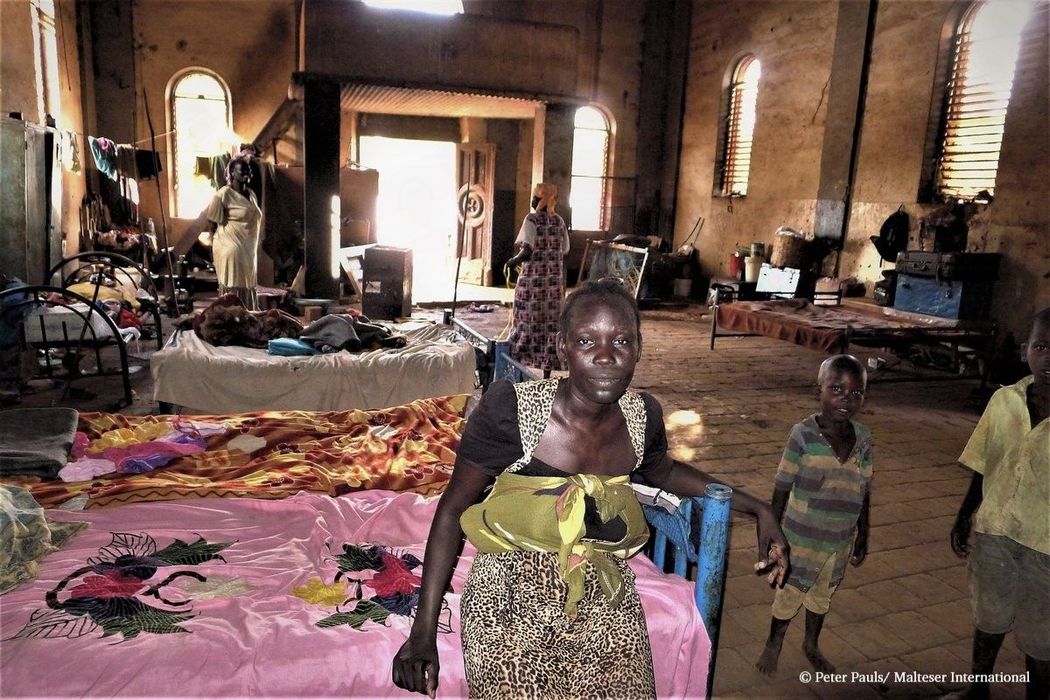
Perina Radolfo, a woman with a very calm personality, is one of the displaced currently living in Wau. She has found a space in an old cathedral where she has an old iron-framed bed which she shares with her four children. The bed stands in a draughty corridor right next to the altar. There's no such thing as privacy in this place. The beds have been arranged close together so that as many people as possible can fit into what used to be a church.
Perina’s calm personality give way to loudness when she thinks about the attack on her village. Her tales of the massacre two year ago are laced with a certain sense of hysteria. Her husband was killed in that attack. She managed to flee the onslaught with other villagers, and together they found refuge in the church grounds in Wau. Today, the church has become a symbol for safety for those escaping the brutal violence of the civil war.
South Sudan: Africa's largest refugee crisis since Rwandan genocide
Two years after its independence in 2011, a political crisis erupted in South Sudan. The conflict spiraled into a civil war which has led to the death of tens of thousands of people. Two million people have been displaced across the border into neighboring countries. The United Nations says the number of South Sudanese refugees could exceed 3 million by the end of the year — making it Africa’s largest refugee crisis since Rwanda’s genocide in 1994.
The conflict has led to a collapse of the economy, whole villages have been deserted and farms left untended. People are afraid to go to work on their farms for fear of attacks by armed groups who plunder the fields. Basic staple food has is imported from Sudan and Uganda, but sky-high prices mean that very few can afford the little food available. Seven million people in South Sudan are now in need of urgent humanitarian assistance.
Since 2014 Malteser International has been providing clean drinking water and hygiene articles to displaced persons in Wau. In addition to emergency relief measures, we are also supporting people on for the long-term.
Our urban gardening initiative has helped many families to continue growing fruits and vegetables on small plots of land in the safety of the city. This way they can support themselves with the food they need, and sell the surplus on the market to boost their income.
When Ramadan Klagish Bringi arrived in Wau, he had barely enough food to feed himself and his family of six. Our initiative provided him with seedlings and farming tools with which he was able to grow okra, corn, beans and Tomatoes (left). The yield was not great, but it was enough to feed his family. With the small orchard right next to his new home, he has everything in view.
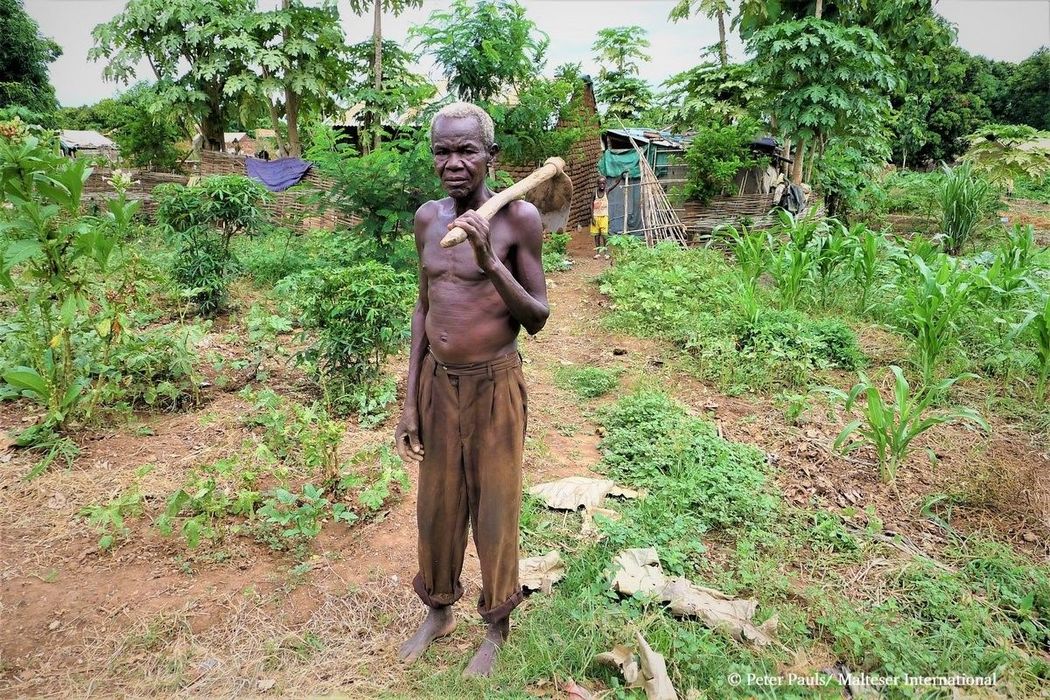
Helda Lada Warwonda is over 80 years old, and is barely able to walk. She has lived through three wars. Her son was recently killed, leaving her to take care of his children. For vulnerable members of the society like Helda, we provide cash aid to help them buy what they need. Helda is no longer able to grow her own vegetables, but has money she to buy essentials such as sorghum and oil to feed herself and her grandchildren.
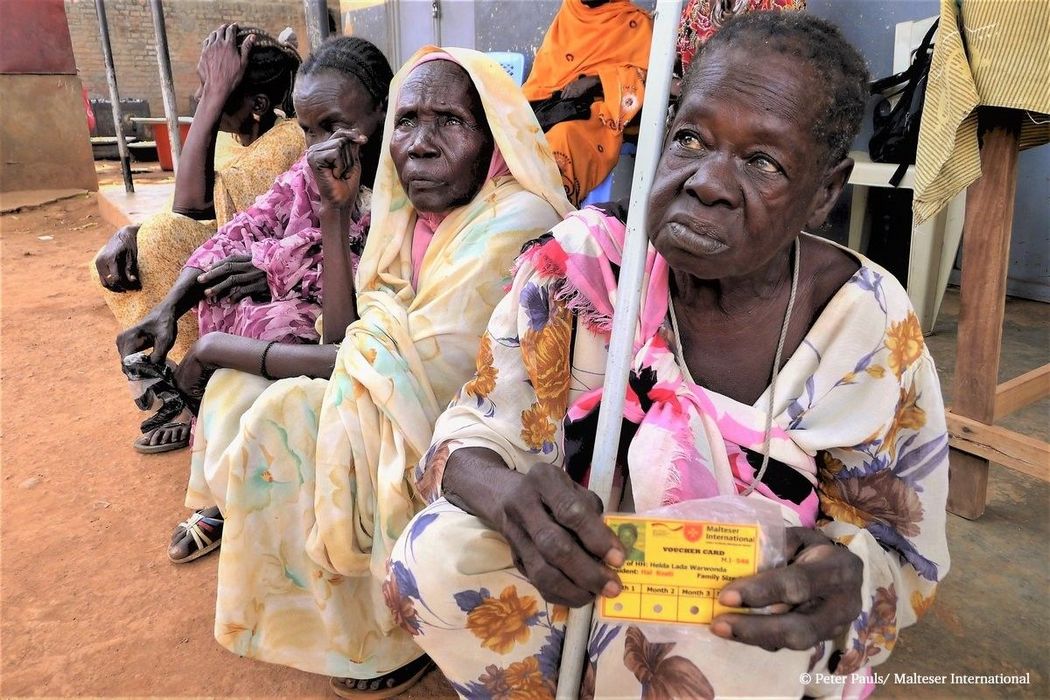
Despite several peace talks and ceasefire deals, there is no indication that the conflict will end soon. The longer the conflict lasts, the worse the situation becomes. For Perina Radolfo, there will be no home to return to when the war eventually ends. She left all her belongings when she fled her village. She reckons her home is now occupied by someone else. For now she earn some money from knitting and selling napkins. All she has now are her children and a future full of uncertainties.
The tragedy in South Sudan is largely man-made. If we act now, together we can help many people to survive and thrive.
Interviews: Peter Pauls
Pictures: Peter Pauls
Find out more about Malteser International's projects in South Sudan!

